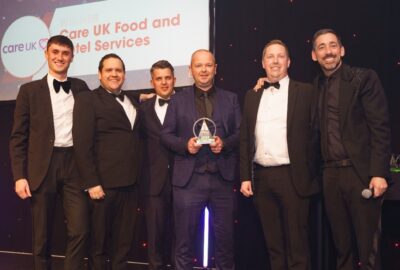Care caterers are being urged to keep their cool this summer – and look after their elderly residents, as well as themselves, in the heat.
The National Association of Care Catering (NACC) has issued a series of downloadable factsheets packed with helpful tips and advice for summer health and wellbeing.
Neel Radia, national chairman of the NACC, comments: “Heat can affect anyone but older people are amongst those at greater risk of serious harm. Dehydration and heat-related illnesses, such as heat rash or heatstroke, can be prevented, so I can’t emphasise enough how vital it is for everyone with a responsibility for the care of the elderly and vulnerable to be fully prepared for the warmer summer months. It really is all about good preparation and communicating plans effectively to staff, and also to residents and service users, whether in care homes or their own homes, and their families.
“Simple steps such as keeping up-to-date with local weather forecasts, ensuring the right clothing is worn and rooms are kept cool, applying sunscreen and minimising strenuous activities at the hottest times of the day can make a huge difference.
“It’s also crucial to ensure both residents and staff keep hydrated, especially catering staff in hot kitchens. Increasing fluid intake throughout the day and making sure drinks are always accessible will help prevent dehydration and the many related illnesses this can bring on, such as dizziness, falls and urinary infections.”
The factsheets are available at www.thenacc.co.uk/ resources/top_tips.
Guidance for staff working in kitchens
Catering staff, working in a hot kitchen environment, are more likely to be at risk in a heatwave and should therefore be aware that they need to drink more than usual:
- Keep consuming fluids (water, fruit juice, ice lollies, jellies etc.) to avoid dehydration
- Don’t wait until you are thirsty – drink little and often and try to avoid alcohol, tea and coffee (Drinks that contain caffeine, cause the body to lose fluid which increases the risk of heat related illness)
- Serve/prepare/consume cold foods and foods that have a high water content including vegetables, salads and summer fruits, jellies, ice creams, sorbets, yoghurts etc.In addition to this general guidance staff should:
- Not turn on ovens (or other equipment that produces heat) until necessary
- Ensure refrigeration equipment is operating correctly, serviced and maintained in optimum working condition
• Unlike other rooms, keep cooking areas as cool as possible by opening windows (remembering fly screens) using cooling fans and local exhaust ventilation in the hottest places. Ensure equipment is operating safely and correctly. Placing an ice pack (cooler block) from your freezer, safely in a fan’s airflow, can help to cool the circulating air
• Do not remove protective clothing (such as hair nets, gloves, mitts and protective footwear) This will be counterproductive and increase risk of injury
• Wear cool, breathable clothing like cotton (relaxing uniform protocols if necessary)
• Take a break where possible and get out of the kitchen to allow your body to cool down
• Review menus and provide more cold options where possible


